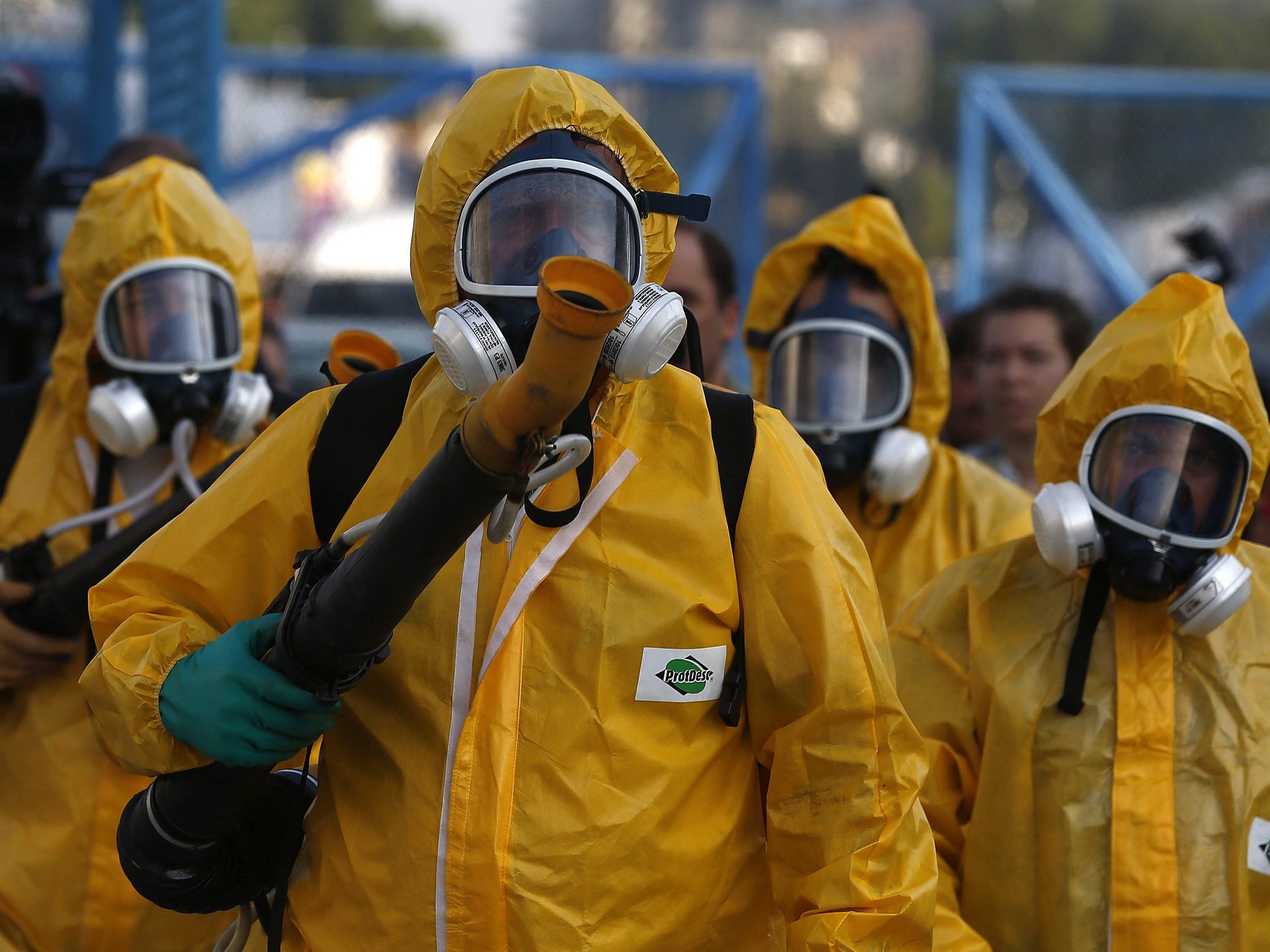Your support helps us to tell the story
From reproductive rights to climate change to Big Tech, The Independent is on the ground when the story is developing. Whether it's investigating the financials of Elon Musk's pro-Trump PAC or producing our latest documentary, 'The A Word', which shines a light on the American women fighting for reproductive rights, we know how important it is to parse out the facts from the messaging.
At such a critical moment in US history, we need reporters on the ground. Your donation allows us to keep sending journalists to speak to both sides of the story.
The Independent is trusted by Americans across the entire political spectrum. And unlike many other quality news outlets, we choose not to lock Americans out of our reporting and analysis with paywalls. We believe quality journalism should be available to everyone, paid for by those who can afford it.
Your support makes all the difference.Cases of the mosquito-transmitted Zika virus have been reported in Germany following confirmation a Danish tourist has also tested positive for the illness.
Authorities said on Wednesday the patient in Denmark is not the first Zika case in Europe, with confirmed cases in both Germany and Britain, according to Romit Jan from the European Centre for Disease Prevention and Control in Stockholm.
According to n-tv, “multiple German travel returnees” have been diagnosed with the virus, however the World Health Organisation says there have been two German cases of the virus in tourists returning to the country in December.
A WHO statement released on 21 January says: “Between 4 and 12 January 2016, the National IHR Focal Point for Germany notified PAHO/WHO of two cases of ZIKA virus infection in German nationals who had returned from Haiti to Germany in late December."
WHO says samples from both patients were collected and sent for laboratory testing at the national reference centre for tropical diseases in Germany.
While one of the cases was confirmed by both RT-PCR and serology, the other was confirmed only by serology.
Anhus University Hospital in Denmark said a patient was discovered to have the virus on Tuesday after running a fever, a headache and muscle aches.
The hospital did not release any further detail about the patient said there is little risk of it spreading in Denmark because the mosquito-carrying virus isn’t found in the country.
Public Health England confirmed on Monday "a total of 6 cases have been diagnosed in UK travellers" returning from Colombia, Suriname and Guyana.
They said "a small number of cases have occurred through sexual transmission or by transmission from mother to foetus via the placenta" - the virus does not spread directly from person to person.
A Zika virus case was also confirmed in Sweden last summer, said Sara Rorbecker of the Swedish Public Health Agency.
She said the patient contracted the virus while traveling, adding there was nothing “dramatic” about the case.
Zika virus is not a notifiable disease in the European Union, meaning EU countries are not required to report cases to the ECDC. Therefore, there is wide variation on reporting by member states.
Officials warned on Monday only Canada and Chile would escape the spread of the virus as it extends its spread across the Americas, where thousands of people have been affected by the illness that poses a particular threat to pregnant women.
While Zika itself is not particularly dangerous to most people, there is growing evidence of a link between the virus in pregnant women and birth defects in their children.
There is no known antidote to the virus.

Join our commenting forum
Join thought-provoking conversations, follow other Independent readers and see their replies
Comments